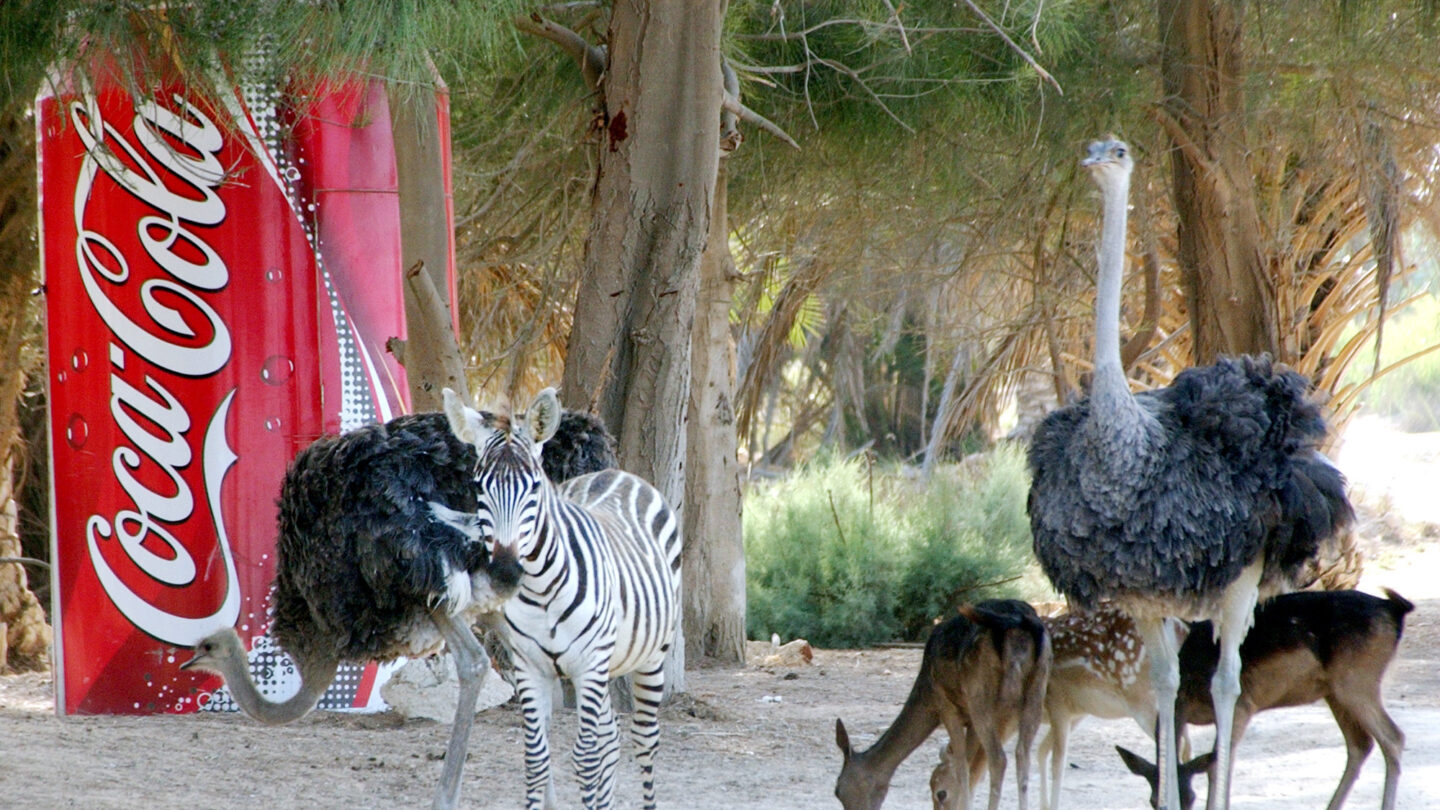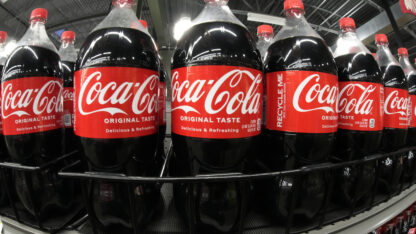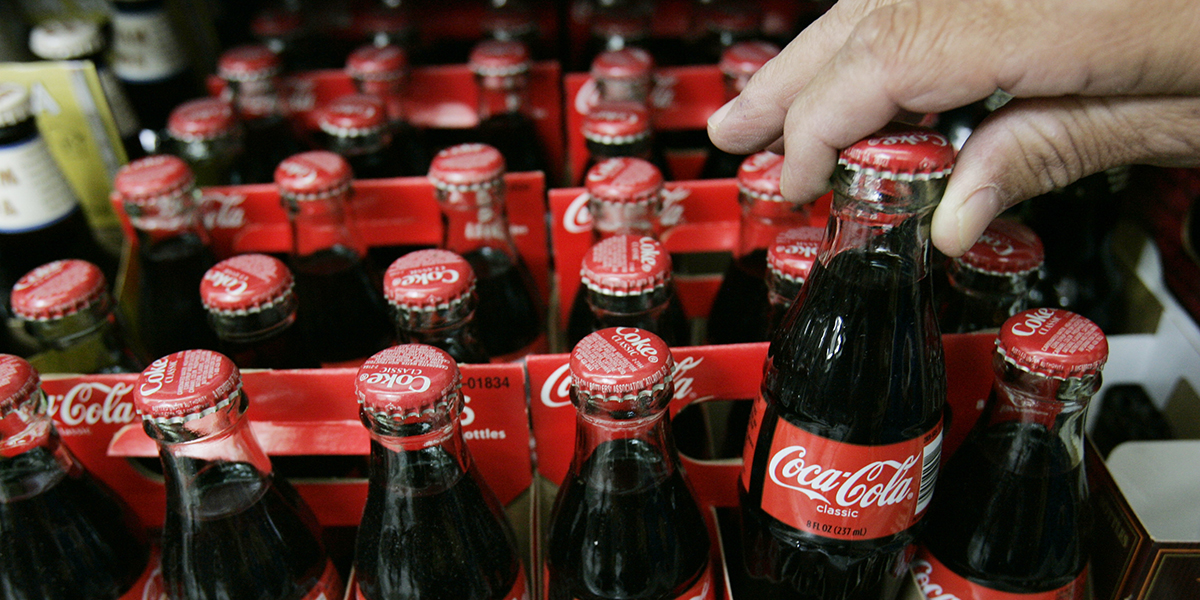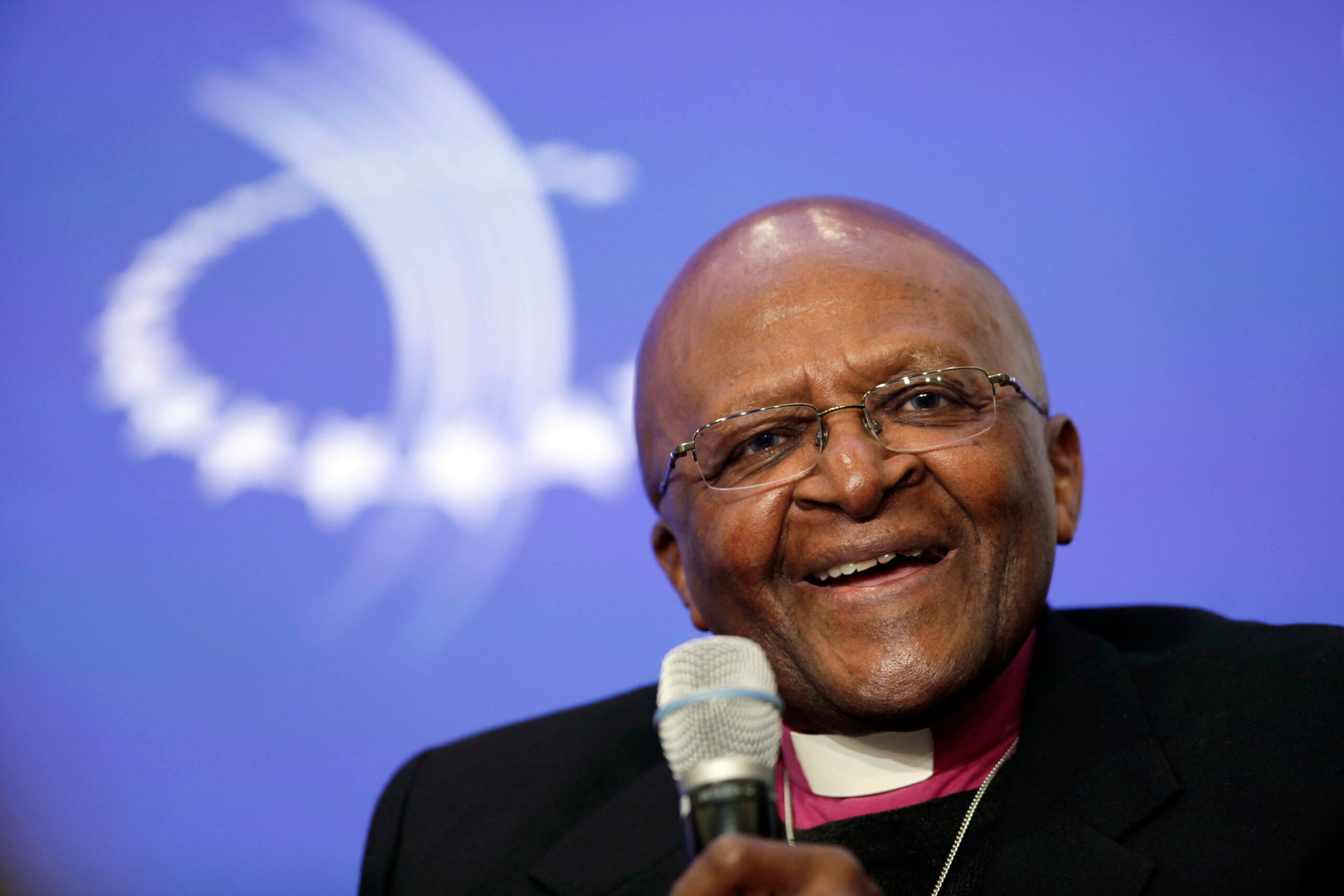Author of 'Bottled: How Coca-Cola Became African' on the Atlanta-founded Coke's surprising history

Author-historian Sara Byala had an epiphany about Coca-Cola’s role in African life and culture in 2003. She and a group of fellow graduate students had found their way across Mali’s Saharan Desert via an arduous journey that involved a broken-down jeep followed by bouts of hiking and hitchhiking.
When the exhausted group reached a Niger River ferry stop the next day, the pause that refreshes took on new meaning. “Boarding, grimy and parched, we are offered — as in a dream — ice-cold Coca-Cola,” she writes in her book, “Bottled: How Coca-Cola Became African.”
At the time, she wondered, “How is this here … Where was this bottled, how was it transported and, most importantly, how was this cooled?”
Good questions, all — which she pursued and now answers in her new book. After writing it, Byala, associate director of the University of Pennsylvania’s Global Documentary Institute and a senior lecturer in critical writing there, has come to conclude “that an ice-cold Coke far up the Niger River was as much about Mali as it was emblematic of an American corporation’s reach.”
If this sounds a bit like an explanation for how the blog you are reading came to be called “Goats and Soda,” you are not far off.
“The blog is aptly named,” Byala affirmed in a telephone conversation about how Coca-Cola and Africa became so intertwined — and the pluses and minuses of their shared history.
Byala also explained how the American multinational company made its soda seem “local” in even the most out-of-the-way areas in Africa, how the company dealt with divestment and apartheid and how the company is addressing health and environmental challenges.
Here are excerpts from the interview, which has been edited and condensed for clarity and space:
How big is Coca-Cola’s footprint in Africa?
It’s huge. The company employs about 70,000 people in Africa. [Each of] these jobs in turn supports between four and ten additional people in secondary jobs, in industries providing bottles, crowns [caps], carbonic gas [for the water], advertising. This multiplier effect makes it responsible for up to 750,000 jobs.
It’s also ubiquitous. You see signs advertising Coca-Cola everywhere. Being able to sell Coke came to signify modernity — because to serve it cold, you need electricity and refrigeration. People also came to trust Coke as safe for consumption, which cannot always be assumed about water in remote places.
What were Coke’s beginnings in Africa?
The story begins with the kola nut. It had been cultivated [in its native Africa] and used as everything from a stimulant to [medical] restorative in all parts of the continent for centuries [usually it was chewed]. By the 1880s, kola samples had reached Europe and America. Atlanta-based patent medicine maker John Pemberton formulated a non-alcoholic brew (a marketing plus for the temperance-minded) that combined carbonated water with kola, sugar, caramel and coca leaves.
According to official Coca-Cola history, the beverage itself didn’t appear on the continent until 1928, but I found records of it being sold as early as 1909 at a soda fountain in Cape Town.
And as you note in the book, kola nut extract is no longer likely part of the recipe: “Somewhere along the way, the amount of kola nut that could be found in Coca-Cola became close to, if not, negligible.”
How did Coke become so popular in Africa?
By becoming local. It sounds counterintuitive. But what became apparent to me in researching the book was that though it is an American product, throughout Africa it’s considered local.
So, in addition to Coke’s appeal as a sign of modernity, was it also seen as local? In what way?
Coke exports a concentrate to two factories in Africa where it is then mixed with carbonated water and sugar and other ingredients, all provided locally. Any local bottler will be getting shipments of that concentrate and doing everything locally. There are bottling plants in the vast majority if not all of African countries — and usually several within a given country.
From there, the many distributors and distribution centers—including small, independently run depots, most of which are owned and run by women—transport Coca-Cola via large trucks, bicycles, boats, small ships or mules, including to the most remote points on the continent.
Is it unusual to have women entrepreneurs in Africa?
Coke worked with NGOs, governments, and other actors to provide women with mentorship, credit, and employment access. Because female entrepreneurship is so entrenched in sub-Saharan Africa, women rapidly took advantage of these new opportunities. The work in north Africa was similar but faced a different set of cultural values.
How else did Coke become both visible and local?
Coke also found numerous ways to make the brand visible everywhere, helping to sponsor parades, beauty pageants, tournaments, sports, music concerts, public events, major and minor, throughout the continent.
You also see fascinating ways in which Coke waste materials get upcycled, recycled, and repurposed. I was in Uganda last summer and saw petrol being sold to drivers in Coke bottles.
Coca-Cola bottles get repurposed all over Africa in all sorts of ways. In this case, they were used to selling small amounts of petrol, presumably because that quantity was all people either needed or could afford.
You can buy numerous arts and crafts items among other objects on sale, all made from Coca-Cola bottles both plastic and glass, cans, labels and so on.
Like the Coca-Cola picture frame with the photo of your family?
I’ve been collecting these kinds of items for years! Coca-Cola cans, bottle tops, and bottles are upcycled in all sorts of ways to make everything from toys and purses to trivets and frames. This means that the containers are used as mediums for artisans who produce items that are worth more than the original material. Hence, my picture frame, made out of flattened Coke bottles, and housing a family picture from my cousin`s wedding in 2013 Durban.
How did Coke respond — or not – to apartheid?
Many Coke plants resisted so-called “petty apartheid” rules such as segregating bathrooms and canteens. Still, in the 1970s the company remained reluctant to sign the “Sullivan Principles” that called for disinvestment in apartheid South Africa. That was one reason why, in 1981, American civil rights activists threatened to boycott Coke. In response, Coke promised to hire and promote Black employees in the U.S. and review how to deal with apartheid in South Africa. Coke figured out a way to simultaneously keep selling the product there while also technically divesting themselves from the country, thus depriving the apartheid state of tax revenue.
In addition, Coke funded a $10 million independent charity [based in South Africa] called the Equal Opportunity Fund to support education, housing and business development. And it allied itself with Nelson Mandela’s ANC party to help end apartheid.
The EOF was based in South Africa and funded work solely in South Africa. In the book, I write about Coca-Cola’s work with the ANC, Nelson Mandela’s party. This work never took the form of a formal alliance. Nor was the company ever outwardly committed to working with the ANC or helping end apartheid. Still, the company played an important and never before written about role in doing just that, through funding, disinvestment and creating on-ramps to economic participation for previously disadvantaged South Africans that helped ease the transition to the post-apartheid order.
Are there costs to Coke’s popularity in Africa?
First, there are threats to the human body: sugar is not good for you, and liquid sugar is worse for you.
Second: waste from packaging, leaving landfills stuffed with plastic and glass and cans.
Third: water.
Do you mean using supplies of potable water that would/should go to the general public?
Yes and no.
Coca-Cola cannot be produced without access to clean water. The environmental challenges around water are vast and include procuring enough water, making sure available water is clean and being sure to put back into the environment as much water as it uses so as not to use more than its fair share.
How does Coke address these issues?
These are threats to Coke’s business as well as to humanity.
Many people in Africa lack sufficient water. In 2010 the company launched the Replenish Africa Initiative (RAIN) a huge umbrella project to address the water crisis throughout the continent.
In just over a decade, about six million Africans had improved water access while over one million Africans had access to better sanitation and nearly half a million hectares of land had improved water access. While critics argue that RAIN’s success is but a drop in the bucket in terms of human need, it remains the case that it has done more than any other benefit scheme.
And how about sugar, and its relation to obesity and related health problems?
Coca-Cola’s approach to sugar is multifold: one, reduce package size; two, expand into non-sugar and low-sugar drinks, including bottled water and juice; and, three, lower the amounts of added sugar in established brands. There are many [other] products on the market that contain high levels of added liquid sugar, like drinkable yogurts and Frappuccino’s. Coca-Cola’s aim is, in its breadth of products and variety of sizes, to provide options for all consumers.
And what about landfills?
Just as Coca-Cola seeded recycling in America, so too the company is at work to create mechanisms for recycling in Africa, thus reducing landfills. In the book, I detail the work of PETCO, a Coca-Cola driven consortium of PET or plastic producers in South Arica, that has successfully driven [down] that country’s recycling rate.
The company also partners with governments and NGOs to provide their technical or logistical expertise. One example is Project Last Mile, whose website asks, “If you can find a Coca-Cola product almost anywhere in Africa, why not life-saving medicines?” The group partners with other organizations (including the Bill and Melinda Gates Foundation, a funder of this blog) to get medical resources to those who lack access to necessary medicines. Coca-Cola helps apply its logistical knowledge base to help with issues of storage, distribution, marketing and delivery.
So on balance, how would you describe the benefit/harm ratio of Coke in Africa?
My book does not offer a clearcut verdict on the benefit/harm ratio of Coke in Africa. Rather, my book is a work of explanation that sets out to show how Coca-Cola became ubiquitous across Africa and to describe what this ever-presence means. In laying out this complex story, I show how the company uses resources, brands the continent and leads the rise of noncommunicable diseases. But, I also show how with the spread of Coca-Cola came the spread of electricity, human capital, employment and water. I leave it to the reader to wrestle with the verdict.
Diane Cole writes for many publications, including The Wall Street Journal and The Washington Post. She is the author of the memoir “After Great Pain: A New Life Emerges.” Her website is DianeJoyceCole.com.
9(MDAxODM0MDY4MDEyMTY4NDA3MzI3YjkzMw004))








